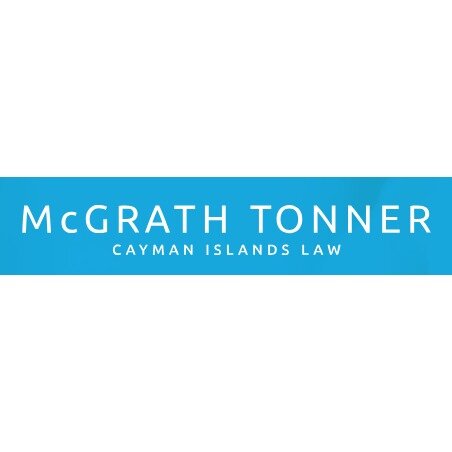Best ADR Mediation & Arbitration Lawyers in Cayman Islands
Share your needs with us, get contacted by law firms.
Free. Takes 2 min.
Or refine your search by selecting a city:
List of the best lawyers in Cayman Islands
About ADR Mediation & Arbitration Law in Cayman Islands
Alternative Dispute Resolution (ADR) is a method of resolving disputes outside of the courtroom through mediation and arbitration. In the Cayman Islands, ADR is becoming increasingly popular as a way to settle conflicts efficiently and cost-effectively.
Why You May Need a Lawyer
You may need a lawyer for ADR Mediation & Arbitration in Cayman Islands if you are involved in a legal dispute that requires a neutral third party to help facilitate a resolution. This could include disagreements in business contracts, family matters, or even community disputes.
Local Laws Overview
In the Cayman Islands, ADR Mediation & Arbitration is governed by the Arbitration Law 2012 and the Mediation Law 2012. These laws outline the procedures for resolving disputes through ADR and provide a legal framework for enforcing any agreements reached through mediation or arbitration.
Frequently Asked Questions
1. What is the difference between mediation and arbitration?
Mediation is a voluntary process where a neutral mediator helps parties reach a mutually agreeable solution. Arbitration is a more formal process where an arbitrator makes a binding decision on the dispute.
2. How long does ADR Mediation & Arbitration typically take in Cayman Islands?
The length of time for ADR varies depending on the complexity of the dispute, but in general, mediation tends to be quicker than arbitration.
3. Can I use ADR for any type of legal dispute?
Most disputes can be resolved through ADR, but some exceptions, such as criminal cases, may require a court resolution.
4. Do I need a lawyer for ADR in Cayman Islands?
While not required, having a lawyer represent you can help ensure your rights are protected and that you have a fair outcome in the ADR process.
5. What happens if the parties cannot reach an agreement in mediation?
If the parties cannot reach an agreement through mediation, they may choose to pursue arbitration or take the dispute to court.
6. How are mediators and arbitrators selected in Cayman Islands?
Mediators and arbitrators in Cayman Islands are typically selected based on their expertise and experience in the specific area of law relevant to the dispute.
7. Are the decisions reached through ADR legally binding?
Yes, agreements reached through mediation and decisions made through arbitration are legally binding and enforceable in Cayman Islands.
8. Can I appeal an arbitration decision?
Arbitration decisions are typically final and binding, with limited avenues for appeal. It's important to carefully consider the implications before entering into arbitration.
9. How much does ADR in Cayman Islands cost?
The cost of ADR varies depending on the complexity of the dispute and the fees of the mediator or arbitrator. It is generally more cost-effective than going to court.
10. How can I find a qualified ADR professional in Cayman Islands?
You can contact the Cayman Islands Chamber of Commerce or the Cayman Islands Law Society for recommendations on qualified mediators and arbitrators in the region.
Additional Resources
For more information on ADR Mediation & Arbitration in Cayman Islands, you can visit the Cayman Islands Chamber of Commerce or the Cayman Islands Law Society for guidance and resources.
Next Steps
If you require legal assistance for ADR Mediation & Arbitration in Cayman Islands, it is advisable to consult with a qualified lawyer who specializes in alternative dispute resolution. They can guide you through the process and help ensure a fair resolution to your dispute.
Lawzana helps you find the best lawyers and law firms in Cayman Islands through a curated and pre-screened list of qualified legal professionals. Our platform offers rankings and detailed profiles of attorneys and law firms, allowing you to compare based on practice areas, including ADR Mediation & Arbitration , experience, and client feedback.
Each profile includes a description of the firm's areas of practice, client reviews, team members and partners, year of establishment, spoken languages, office locations, contact information, social media presence, and any published articles or resources. Most firms on our platform speak English and are experienced in both local and international legal matters.
Get a quote from top-rated law firms in Cayman Islands — quickly, securely, and without unnecessary hassle.
Disclaimer:
The information provided on this page is for general informational purposes only and does not constitute legal advice. While we strive to ensure the accuracy and relevance of the content, legal information may change over time, and interpretations of the law can vary. You should always consult with a qualified legal professional for advice specific to your situation.
We disclaim all liability for actions taken or not taken based on the content of this page. If you believe any information is incorrect or outdated, please contact us, and we will review and update it where appropriate.
Browse adr mediation & arbitration law firms by city in Cayman Islands
Refine your search by selecting a city.














